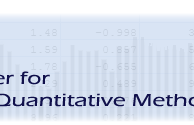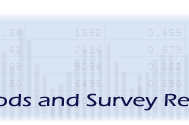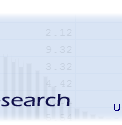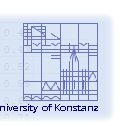






|
Survey Network Data Quality Project Description Many procedures for network-data collection bear the risk of producing inconsistent information. In a questionnaire, for instance, the two actors of a dyad may disagree about the existence of a tie between them, or respondents' reports of perceived social networks may be incongruent. While this is often considered a problem of measurement accuracy, inconsistent data is fundamentally different from erroneous or incomplete data, because it may actually represent additional information about the content of relationships. Consequently, inconsistency should not necessarily be eliminated (e.g., using complete-case or available-case analysis), but exploited where possible. We investigate sources and types of inconsistencies as well as means to make sense of, or at least identify the degree or relevancy of inconsistency. In particular, we are interested in: * methods to assess inconsistency,
* its effect on network-analytic procedures, * its incorporation in methods of network analysis, and * hypothesis generation based on patterns of inconsistency.
|